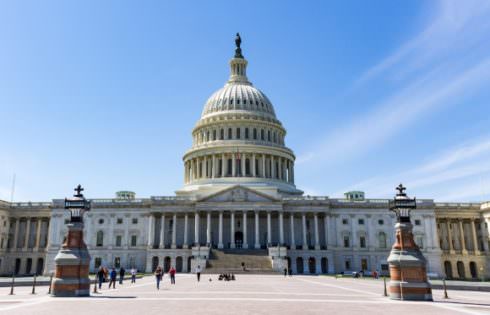
Harvard’s 41-year ban on ROTC programs has come under fire this week in the wake of the Senate’s failed attempt to repeal Don’t Ask, Don’t Tell. But ROTC at Harvard could take more than a DADT repeal.
The university’s policy on ROTC attracted national attention after university president Drew Faust made comments to the Boston Globe defending the university’s position: Harvard will not allow ROTC on campus until DADT is repealed, a policy at the university since a 1994 faculty vote said the DADT policy constituted discrimination.
“It is incomprehensible to me that Harvard does not allow ROTC to use its facilities, but welcomes students who are in this country illegally,” said Sen. Scott Brown said in a statement last week. “Harvard President Faust has been lobbying on Capitol Hill in support of the DREAM Act, which would grant legal status to illegal immigrants attending college. Harvard has its priorities upside down.”
Wednesday, Brown’s office announced an online petition to bring ROTC back to Harvard’s campus.
But, even if DADT is repealed, restoring ROTC at Harvard and other Ivies still could prove a challenge.
“It is by no means clear that the military services want to return,” said Allan Silver, a professor emeritus of sociology at Columbia University. Silver has advocated strongly for the return of ROTC to Columbia, if DADT is repealed.
“They have budgetary problems, especially with the high cost of ROTC fellowships at Ivy institutions,” he said. “Some in the services nurse grudges from the Vietnam period and are culturally more comfortable elsewhere.”
According to Silver, the ROTC Vitalization Act of 1964, which requires that academic issues like curriculum and course credit for ROTC classes fall under the Secretary of Defense rather than the universities, could also pose problems.
The Solomon Amendment, a federal law passed in 1996, allows the Secretary of Defense to deny federal grants to universities if they deny ROTC access to their campuses.
The Department of Defense has not yet requested to open an ROTC office at Harvard.
“If the Department of Defense makes clear that it wants ROTC at Harvard, Harvard would have to allow ROTC or forfeit all of its Defense funding,” said Ed Whelan, president of the Ethics and Public Policy Center in Washington D.C.
In 2005 the Pentagon threatened to withhold federal money from several law schools, including Harvard’s, that denied campus access to military recruiters based upon anti-discrimination policies. The Supreme Court unanimously rejected, in the resulting case, Rumsfeld vs. FAIR, the schools’ claim that the Solomon Amendment violated their freedoms of speech and association.
Even if Harvard did lift its ban on ROTC, though, the Pentagon may not desire to allocate the funds needed to create a new program on campus.
“The current infrastructure is sufficient to both produce the desired number of commissionees,” said Eileen Lainez, a spokeswoman for the Department of Defense. “There is abundant opportunity for interested students to participate.”
Currently, Harvard students who participate in the ROTC program must commute to MIT for courses and drilling, with funding from anonymous alumni. Harvard’s faculty approved this arrangement in 1976.
Despite the continued ban, Faust has publicly expressed support for ROTC students.
At an ROTC commissioning ceremony in 2008 Faust told graduates, “I celebrate you on this important day…I wish there were more of you.”
“She is outstanding in her advocacy for ROTC — more so, to my knowledge, than any Ivy league president,” Silver said. “It does not lie within presidents’ powers to institute ROTC programs, as this requires the approval of faculty.”
In 1994 the Harvard Faculty voted that the university’s policy of forbidding discrimination by student groups forbid it from allowing ROTC on campus. ROTC protocol requires the discharge of openly gay, lesbian and bisexual students, violating Harvard’s anti-discrimination policy.
“We will of course follow any federal policy changes with interest,” said Harvard’s Longbrake.
Wyatt Troia is a staff writer for the Harvard Salient and a student at Harvard. He is a member of the Student Free Press Association.
Like The College Fix on Facebook / Follow us on Twitter






Please join the conversation about our stories on Facebook, Twitter, Instagram, Reddit, MeWe, Rumble, Gab, Minds and Gettr.